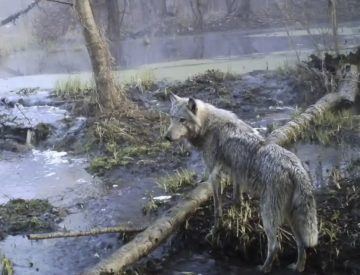Cal Flyn in The Guardian:
 We humans have a profound impact on the world around us. Bob Paine, the groundbreaking American ecologist, once described us as a “hyperkeystone” species: our actions affect the lives and habitats of other creatures more than any other species on Earth. So much so, some scientists have adopted the term Anthropocene to refer to the current era, defined by atomic testing, the climate crisis and the development of plastics. Evidence of human activity will survive long after we are gone, both within the fossil record and in the state of the planet more generally, which we will have influenced in long-reaching and unpredictable ways.
We humans have a profound impact on the world around us. Bob Paine, the groundbreaking American ecologist, once described us as a “hyperkeystone” species: our actions affect the lives and habitats of other creatures more than any other species on Earth. So much so, some scientists have adopted the term Anthropocene to refer to the current era, defined by atomic testing, the climate crisis and the development of plastics. Evidence of human activity will survive long after we are gone, both within the fossil record and in the state of the planet more generally, which we will have influenced in long-reaching and unpredictable ways.
There is some wonderful writing on this subject, not least David Farrier’s Footprints, a fascinating nonfiction book that seeks to predict the traces we will leave behind: from the nuclear waste sealed deep within concrete tombs to the future rust-stained remains of our megacities. The World Without Us by Alan Weisman was a 2007 mega-bestseller along similar lines, which asks what would happen if, for some unspecified reason, all humans disappeared from the planet tomorrow. Drawing from hundreds of interviews with engineers, scientists and archaeologists, it unfolds like a thriller: bridges collapse, subway tunnels flood, skyscrapers fall to the ground.
More here.
